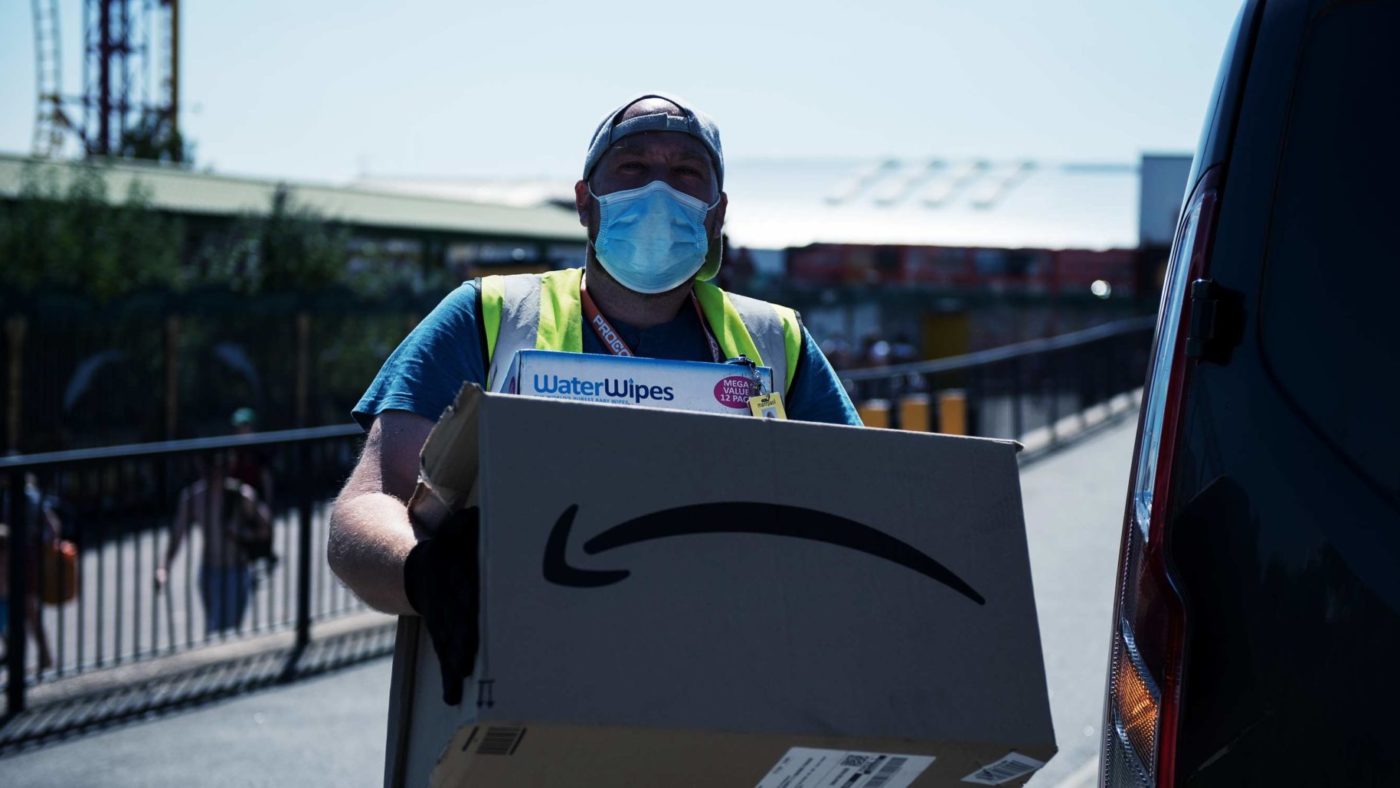Chancellor Rishi Sunak used the UK’s first G7 finance meeting on Friday to urge ratcheting up taxes on the likes of Facebook and Amazon. Facing an economic downturn of epic proportions, the Government is desperate to shore up the public finances and create a ‘level playing field’ between online and high street retailers.
Facebook and Amazon have indeed made a decent penny. But we should remember that profit is the reward for providing something that people need and want. These greedy companies have kept us connected and delivered countless millions of much-needed packages over the last year.
To do so, Amazon invested hugely in their supply chain network, warehouses, and delivery – all while providing in PPE to keep staff safe and hiring thousands more workers – to ensure people could continue to access millions of goods while shops were closed. The fact they did so in pursuit of profit doesn’t mean the services they provide are any less of a public service. To paraphrase Adam Smith, it is not through the benevolence of Jeff Bezos that we expect our next-day delivery, but from his regard to his own self-interest.
The flipside of the tech giants’ success is that many companies have struggled terribly through a combination of Government restrictions and changed consumer behaviour. That is horrifyingly difficult for those involved, but it does not justify punishing successful companies – it justifies continuing to provide state support for companies that are unable to do business.
What’s particularly concerning is that Mr Sunak apparently wants a tech tax to cover revenue, rather than profit. That would be a seriously misguided step. Particularly in competitive markets, high revenues do not necessarily mean bumper profits. This is particularly true in the case of Amazon which maintains tiny margins on many products. The same is true of Britain’s big supermarkets, who have also prospered during the pandemic but operate on razor-thin profit margins.
We should also be wary of nebulous claims that these companies do not pay their “fair share”, given that they pay billions in tax and make huge contributions to their local economies. Low tax bills are typically explained by the Government’s own policies of providing tax relief for research and development, intangible assets and employee share schemes. Taxing revenues would therefore mean giving with one hand while taking with the other – a big tax merry-go-round.
And make no mistake, in the case of the tech titans it’s British consumers, not these foreign companies, who will ultimately be counting the cost. Taxes are ultimately paid by customers in higher prices and staff in lower wages. This will be particularly harshly felt by the eldelry and vulnerable who are using online delivery services to stay safe by avoiding the risk of shopping in-store.
It will also hurt a myriad of smaller businesses, particularly the thousands of British firms who use Amazon Marketplace to reach a wider audience for their products. Last year, when the UK Government introduced the Digital Services Tax, which is set at 2% of revenue, Amazon responded by increasing seller fees and Google and YouTube passed it on to advertisers. Another new tax could also lead to less investment in the ground-breaking research and development that boosts our quality of life and incomes. (Nor will it help ‘save the high street’.)
Sunak has repeatedly raised the prospect of raising taxes to address the enormous Covid debt pile. This is despite the near universal view among economists that tax increases will hamper Britain’s economic recovery. Increasing taxes, or even just the threat of higher taxes, sends a clear message to already struggling businesses to stop hiring, producing and growing. It is the opposite of what the economy needs. Even Labour’s Keir Starmer is railing against tax rises, suggesting it is the Tories who are fast becoming the high-tax party.
Equally importantly, tax rises now are largely unnecessary: spending will need to be bought under control to not continue increasing borrowing but, as it stands, the cost of servicing the UK’s debt remains extremely low. A wiser strategy would be to release ultra long bonds – from 50 to 100 years – to lock in low interest rates on the pandemic debt for decades to come.
The Chancellor should spend less time thinking about how to punish successful businesses and more time on removing the barriers to economic growth. A drive focused on improving the operation of the tax system – so it raises more revenue with fewer economic costs – as well as a focus on cutting unnecessary red tape would provide huge benefits. A knee-jerk tax grab would not help anyone.
Click here to subscribe to our daily briefing – the best pieces from CapX and across the web.
CapX depends on the generosity of its readers. If you value what we do, please consider making a donation.


